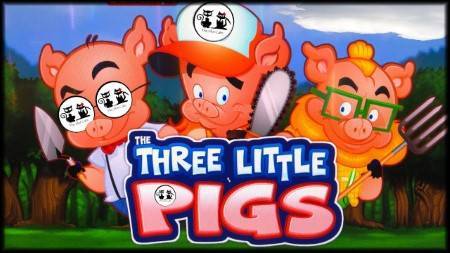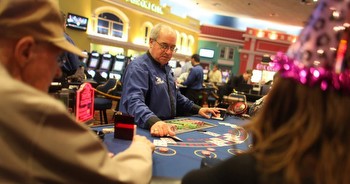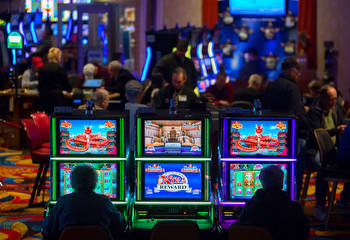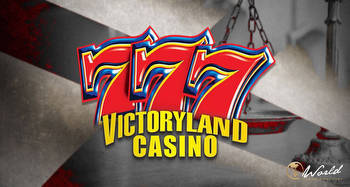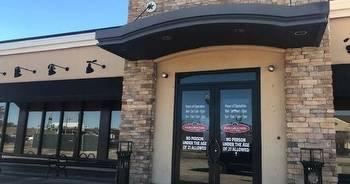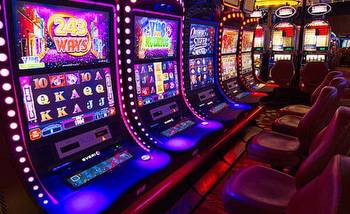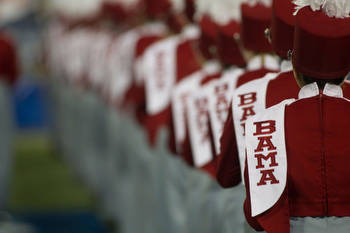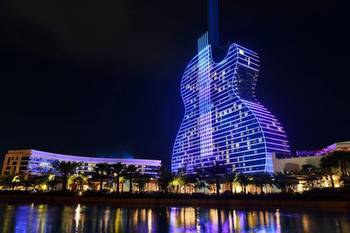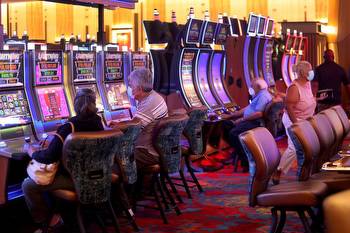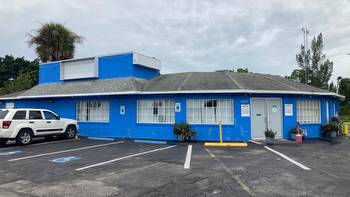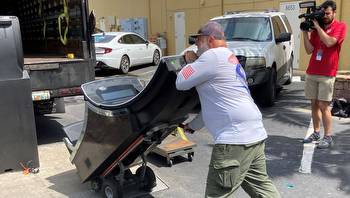Ruffin Companies responds to lawsuit filed by state-owned casino

WICHITA, Kan. (KWCH) - Almost immediately after sports betting became legal here in the state of Kansas on Thursday, the Kansas Star Casino filed a lawsuit against the state. It all stems from an unrelated part of the sports betting law which could revive businesses like the currently-closed Wichita Greyhound Park.
For many years, owner Phil Ruffin pushed for the Kansas legislature to allow for at his facility, but it always failed. In 2007, Sedgwick County voters rejected a casino. Four years later, the Wichita Greyhound Park closed its doors.
Now, 15 years later, the legalization of sports betting may give Ruffin and the Wichita Greyhound Park a chance to reopen.
Boyd Gaming, the operator of the Kansas Star Casino, filed a lawsuit on Thursday arguing that the state breached its contract because of a provision in the newly signed law, allowing for “new gaming devices” such as “historic horse racing machines.” The machines will replay past horse races and people can “bet” on which horse wins.
The suit claims these machines are essentially slot machines. In a contract with the casino and the Kansas Lottery, slot machines are prohibited from competition at similar facilities in the Wichita area.
Historic horse racing machines are said to require some skill for each bet, stating bettors know which horses have the better odds of winning.
Slot machines use a “random number generator” ensuring each spin is random, and winning is by chance.
In a statement, Boyd Gaming said, historic horse racing machines “are gaming devices that are indistinguishable under the law and to a player from a traditional slot machine. They look like slot machines, play like slot machines and are marketed like slot machines. It is unfortunate that the State has enacted into law the placement of 1,000 of these HHR machines in direct violation of our contract.”
In the statement below, the Ruffin Companies said otherwise.
“We are disappointed but unfortunately not surprised that Boyd Gaming, the manager of the state-owned and operated casino in Sumner County, filed a lawsuit against the state of Kansas. This action fits a longstanding pattern of litigation threats against elected officials and Kansas taxpayers. Boyd Gaming’s unsupported demand for $25 million in damages from public funds to refund privilege fees paid some 12 years ago, together with a demand for usurious interest that equates to $53 million-plus -- more than double the fees themselves -- demonstrates the absurdity of this lawsuit.
Kansas voters approved parimutuel wagering in 1986 by way of a state constitutional amendment approved by vote of the people. The Kansas Legislature then created statutes to define parimutuel and how it would be conducted within the state. It was then - and remains today - within the legislature’s purview to define and regulate parimutuel wagering. The Kansas legislature, in the recent session, did what multiple other states have done over the last 20 years: they identified key differences between slot machines and historic horse racing machines (HHRMs) and like those other states, classified HHRMs in the statute as parimutuel. Parimutuel wagering has existed in this state long before the creation of state owned and operated casinos. The operation of statutorily parimutuel wagering can in no way be an expansion of gaming or in any way a breach of contract with a casino manager.
We stand at the ready to assist the state and its citizens in vigorously defending against this meritless lawsuit aimed at stifling competition and obtaining financial windfalls for a casino at the expense of the public trust. We also are looking forward to the day when we can reopen the former Sedgwick County parimutuel facility and provide jobs and entertainment for the people of Kansas.”
The lawsuit asks for a $25 million penalty, which was specified in Boyd Gaming’s contract with the State of Kansas.







